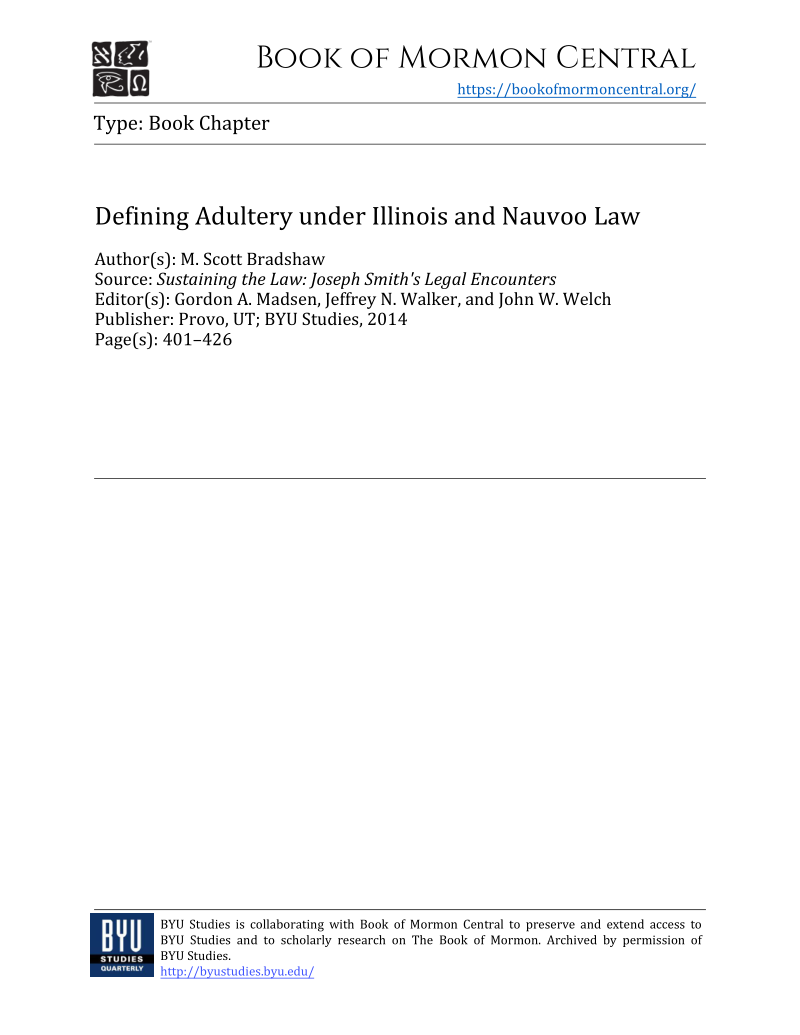Scott Bradshaw reviews the legality of Joseph's plural marriages under Illinois state law; concludes he most like was not breaking any laws.
- Type
- Academic / Technical Report
- Source
- Scott Bradshaw LDS
- Hearsay
- DirectSecondary
- Reference
Scott Bradshaw, "Defining Adultery under Illinois and Nauvoo Law," in Sustaining the Law: Joseph Smith's Legal Encounters, ed. Gordon A. Madsen, Jeffrey N. Walker, and John W. Welch (Provo, UT: BYU Studies, 2014), 401-426
- Scribe/Publisher
- BYU Studies
- People
- Scott Bradshaw
- Audience
- Reading Public
- Transcription
The final weeks of the Prophet Joseph Smith’s life were busy. Besides the usual press of Church business, Joseph was involved with many things, including reviewing work on the construction of the Nauvoo Temple, selling land, pay-ing debts, making social visits, receiving visits from Indians and dignitaries, attending military training, and coordinating his presidential campaign. He also had to contend with brief bouts of illness affecting both him and Emma, swelteringly hot weather, the defection or removal of highly placed Church and civic leaders, the publication of an anti-Mormon newspaper, and a series of lawsuits and indictments brought against him.
Among the legal challenges that Joseph faced at this time was an indict-ment for adultery, a charge which arose out of his relationship with Maria Lawrence, a young English convert to whom Joseph was sealed in Nauvoo and who lived with Joseph and Emma in their home. Several authors have assumed that Joseph’s plural marriages were entered into in violation of the law. Indeed, given the conservative social mores of nineteenth century, one could easily assume that this was the case. However, a study of Illinois law reveals a different situation. As explained below, Joseph could not have been properly convicted of adultery under the law of Illinois in 1844. Illinois law only criminalized adultery or fornication if it was “open.” Had Joseph lived to face trial on this charge, he would have had good reason to expect acquittal because his relationships with his plural wives were not open, but were kept confidential and known by a relative few.4 Given a fair trial on this indict-ment, Joseph could have relied on several legal defenses.
- Source Link
- https://archive.bookofmormoncentral.org/content/defining-adultery-under-illinois-and-nauvoo-law
- Citations in Mormonr Qnas
The B. H. Roberts Foundation is not owned by, operated by, or affiliated with the Church of Jesus Christ of Latter-day Saints.

